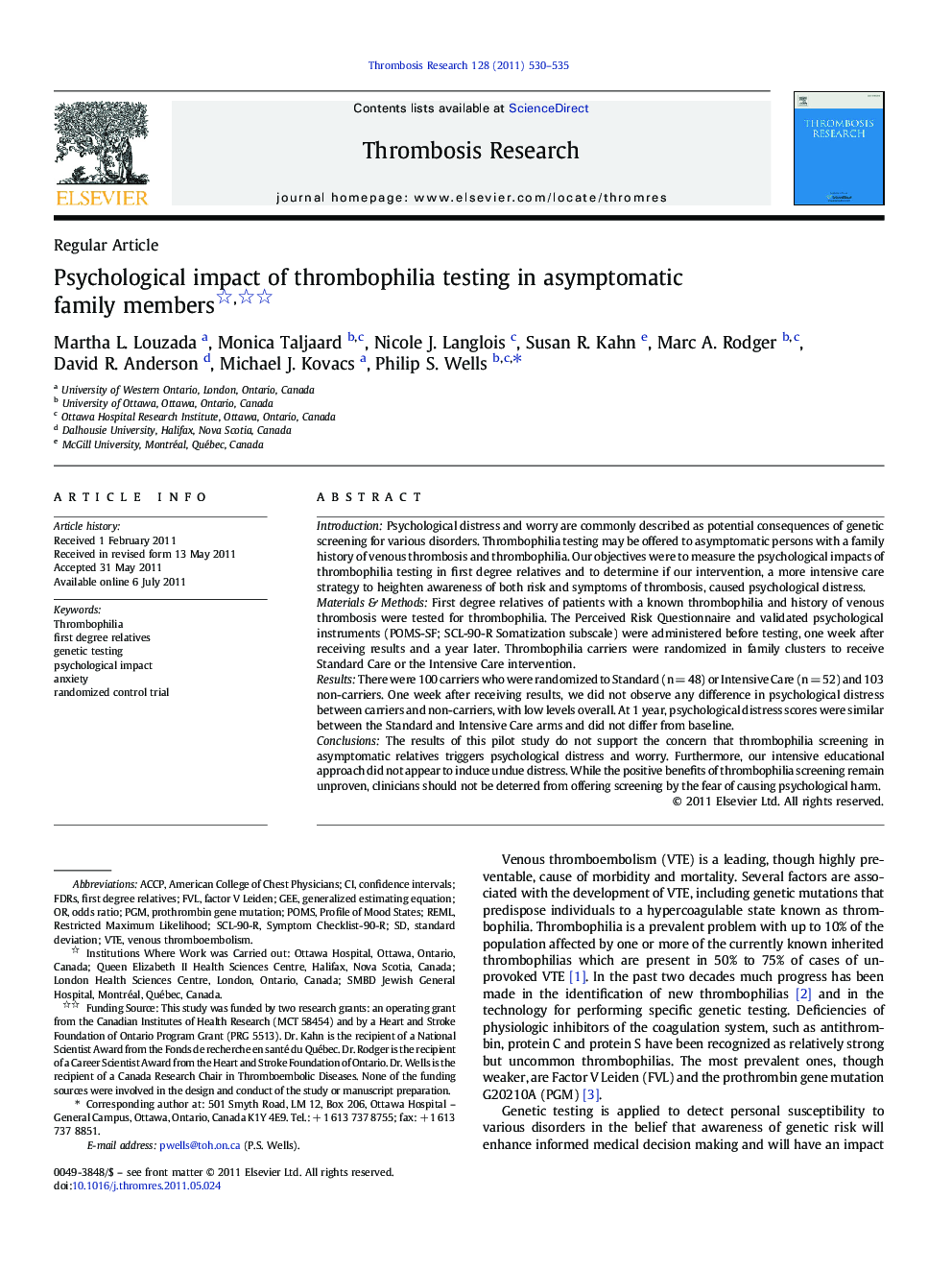| کد مقاله | کد نشریه | سال انتشار | مقاله انگلیسی | نسخه تمام متن |
|---|---|---|---|---|
| 3027553 | 1182979 | 2011 | 6 صفحه PDF | دانلود رایگان |

IntroductionPsychological distress and worry are commonly described as potential consequences of genetic screening for various disorders. Thrombophilia testing may be offered to asymptomatic persons with a family history of venous thrombosis and thrombophilia. Our objectives were to measure the psychological impacts of thrombophilia testing in first degree relatives and to determine if our intervention, a more intensive care strategy to heighten awareness of both risk and symptoms of thrombosis, caused psychological distress.Materials & MethodsFirst degree relatives of patients with a known thrombophilia and history of venous thrombosis were tested for thrombophilia. The Perceived Risk Questionnaire and validated psychological instruments (POMS-SF; SCL-90-R Somatization subscale) were administered before testing, one week after receiving results and a year later. Thrombophilia carriers were randomized in family clusters to receive Standard Care or the Intensive Care intervention.ResultsThere were 100 carriers who were randomized to Standard (n = 48) or Intensive Care (n = 52) and 103 non-carriers. One week after receiving results, we did not observe any difference in psychological distress between carriers and non-carriers, with low levels overall. At 1 year, psychological distress scores were similar between the Standard and Intensive Care arms and did not differ from baseline.ConclusionsThe results of this pilot study do not support the concern that thrombophilia screening in asymptomatic relatives triggers psychological distress and worry. Furthermore, our intensive educational approach did not appear to induce undue distress. While the positive benefits of thrombophilia screening remain unproven, clinicians should not be deterred from offering screening by the fear of causing psychological harm.
Research highlights
► Psychological distress is not common following thrombophilia testing of relatives.
► Any negative psychological response to thrombophilia screening is short-lived.
► An Intensive Care strategy did not increase worry or distress for thrombophilic FDRs.
Journal: Thrombosis Research - Volume 128, Issue 6, December 2011, Pages 530–535